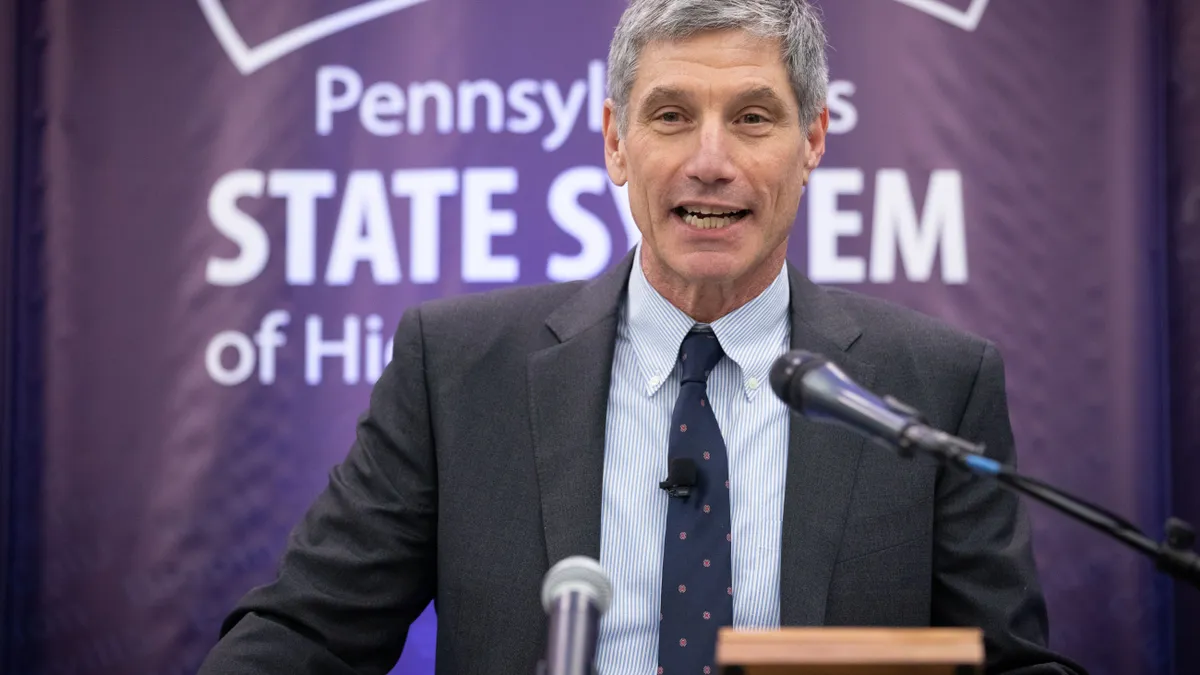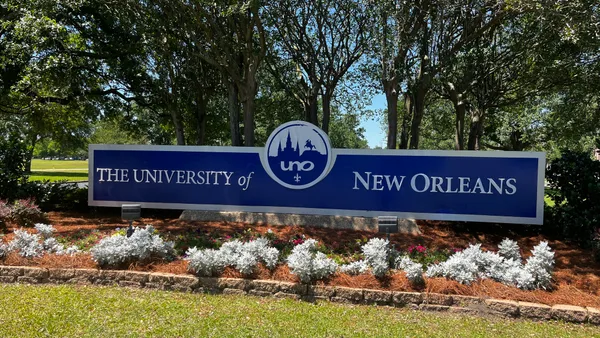Dive Brief:
- Pennsylvania’s network of 10 state-owned universities wants to boost enrollment by 20% over the next several years after seeing it plummet in the last decade.
- Dan Greenstein, chancellor of the Pennsylvania State System of Higher Education, outlined enrollment benchmarks at a meeting of its governing board this week. PASSHE will aim to add 18,000 more students — 11,500 undergraduates, 3,400 graduate students and 3,000 who are seeking nondegree credentials.
- Greenstein told the board of governors that bolstering the number of degree earners will help fill employment gaps in the state, including in sectors like education and health care.
Dive Insight:
Pennsylvania’s demographics will be a headwind to PASSHE achieving its enrollment goals. The number of the state’s high school graduates — where the system primarily draws its students — has slumped in the last decade and is forecasted to drop further by 2036.
System enrollment has fallen for about a decade, dropping from approximately 120,000 students in 2010 to roughly 88,000 now, in part because of the dearth of high school graduates. The state has also slashed PASSHE’s budget over the last 10 years, which in turn caused the system to raise tuition rates. System leaders have said this pushed out many of the low- and moderate-income students it was designed to serve.
PASSHE pursued austerity measures, most notably a recent merger of six of its institutions into two, shrinking the number of system campuses from 14 to 10. Greenstein has said the consolidation, tuition freezes and additional money-saving efforts were intended to demonstrate to state leaders the system was trying to change its practices.
These moves were part of a broader system redesign, which just entered its third and final phase.
And they’ve paid off so far. Pennsylvania lawmakers provided a record $552.5 million for PASSHE’s operating budget, a 16% boost from the previous fiscal year and the largest one-year increase it’s ever received. The state government also passed on to the system $125 million in federal coronavirus aid.
At the governing board’s meeting this week, Greenstein described the cash infusion as a restoration of state policymakers’ faith in the system. Now, to help meet employer demand, PASSHE must grow enrollment, he said.
He acknowledged it is difficult to attract new students amid the projected downturn in high school graduates. Greenstein said the system would turn to helping PASSHE students who historically have not completed a degree — namely low-income and other disadvantaged populations — as well as tapping into the market of nontraditional, adult students.
He cited statistics showing that 60% of Pennsylvania jobs require a postsecondary credential, but only about 50% of adults have earned one.
In a statement, Board Chair Cindy Shapira expressed excitement about the system’s next steps.
“Higher education across the country is evolving, and Pennsylvania’s State System universities are adapting to it,” Shapira said. “This innovative new phase of our System Redesign will expand opportunities for students to help them enroll, succeed, graduate, and enjoy rewarding careers in Pennsylvania while strengthening the universities for the future.”















